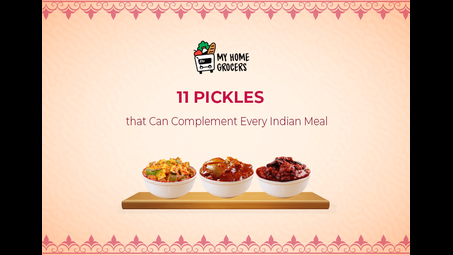Pickles are made in such a way that they last longer the extremely high amount of salt and oil act as natural preservatives. The only thumb rule to store pickles is to avoid any kind of contact with water or moisture. Storing pickles in a glass or ceramic containers in a dry area would help them to stay from getting spoilt.

What else can I help you with?
What is some work that bacteria do?
Some are good, and I think they help with your digestive system, some of them are bad, make you sick. And some, as seen in the Magic School Bus, help preserve stuff. Like pickles.
What food is not produced with the help of bacteria out of beef cheese yogurt pickles?
beef
How plasmolysis helps in preserving jams and pickles?
Plasmolysis in cells results in loss of water, causing shrinkage of cell contents. This process helps in preserving jams and pickles by creating an environment with reduced water content, making it difficult for microorganisms to grow and spoil the food. Additionally, plasmolysis helps to maintain the structural integrity of fruits and vegetables, ensuring the preservation of their texture and flavor.
Lactobacilli bacteria are present in which food preservation process?
Fermentation - A biochemical technique involving lactobacilli bacteria (on all living things) converting starches and sugars into lactic acid. Lacid acid prevents bacterial growth, which causes rotting. Fermentation also increases vitamen levels.
What microbes help you make yogurt vinegar and pickles?
Lactic acid bacteria are a clade of gram-positive bacteria. They consume the sugars and produce lactic acid, which gives pickles their sour taste and inhibits many other microbes from spoiling the pickle.
Do pickles go bad if they are not refrigerated?
Yes, pickles can go bad if they are not refrigerated. Refrigeration helps to slow down the growth of bacteria and preserve the pickles for a longer period of time.
Do pickles have to be refrigerated to maintain their freshness and quality?
Yes, pickles should be refrigerated to maintain their freshness and quality. Refrigeration helps slow down the growth of bacteria and preserve the texture and flavor of the pickles.
Do you have to refrigerate pickles to keep them fresh?
Yes, pickles should be refrigerated after opening to keep them fresh and maintain their quality. Refrigeration helps slow down the growth of bacteria and preserve the pickles for a longer period of time.
What is the basis of long life of pickles and jams?
The pH of jams and pickles are very low and could react with the metal in cans. Glass is less reactive and is generally used for acid foods.
What does a preservative mean?
A preservative either slows down or halts the decomposition of food. For instance, the high sugar content helps to preserve home-made jams. Vinegar preserves hard-boiled eggs, or pickles and chutneys.
Can you freeze pickles to preserve them for a longer period of time?
Yes, you can freeze pickles to preserve them for a longer period of time. However, the texture may change when they are thawed, so they may not be as crisp as fresh pickles.
What does sugar preserve?
It preserves fruit, like in jellies and jams.
Can preserves be turned into jams?
"Preserves" is the category which marmalades, jams, conserves and chutneys fall into. Hence jam is already a preserve.
What is the helpful bacteria that makes pickles and saurkraut?
Lactic acid bacteria.
Which foodstuffs are preserved in house and how it is done?
There are several ways to preserve foodstuffs, within a household. The most common way to preserve foodstuffs is to freeze or refrigerate them.
Does pickle juice have sugar in it?
It depends on the brand and the type of pickles. Most pickles do contain sugar, but very little just to help preserve the pickles.
How can you put the word making into a sentence?
Example sentence - We were making breads, cakes, pickles and jams for the county fair.
